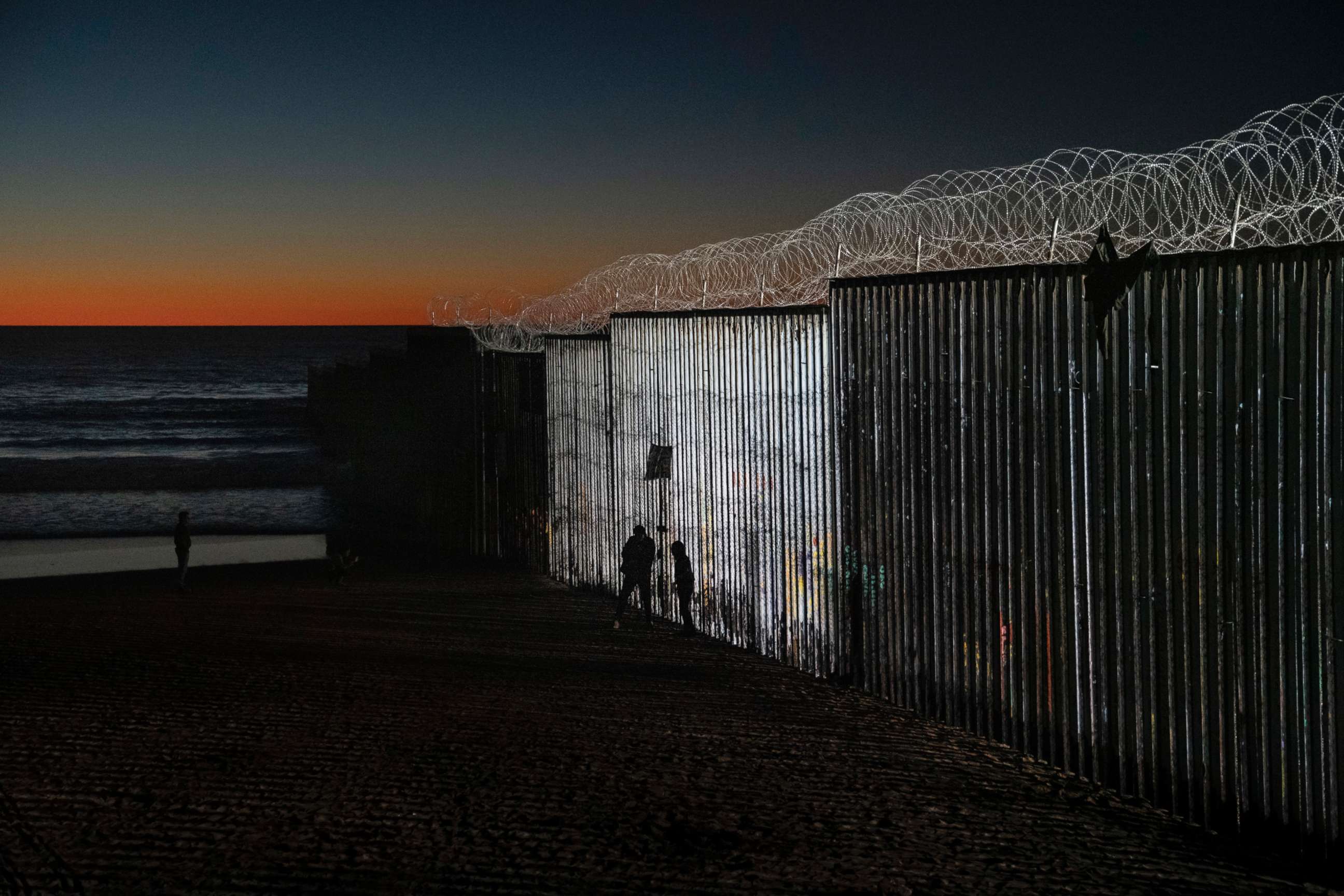Fact Check: State Department says 'no credible evidence' terrorists entering through southern border
The State Dept. said there's "no credible evidence" terrorists arrived that way.
Border security will be front and center when President Donald Trump addresses the nation in a few hours as fact checkers race to see how well his claims on immigration mesh with the facts.
Ahead of the president's speech the administration doubled down on claims about terrorists at the border between the U.S. and Mexico – an assertion that the State Department countered in a report last year.
Terrorists on the border?
In an interview Tuesday with Chief White House Correspondent Johnathan Karl, Vice President Mike Pence claimed that "4,000 known or suspected terrorists, were apprehended coming into the United States through various means in the last year."
When Karl pressed Pence that the majority come through airports, the vice president conflated figures.
"Yeah but, 3,000 special interest individuals, people with suspicious backgrounds that might suggest terrorist connections were apprehended at our southern border," he said. "Last year alone, 17,000 individuals with criminal histories were apprehended at our southern border."
Those two statistics, according to the Department of Homeland Security, are not related.

A similar exchange happened with White House Press Secretary Sarah Sanders appearance on Fox News Sunday and got into a contentious debate with moderator Chris Wallace over border security.
"We know that roughly, nearly 4,000 known or suspected terrorists come into our country illegally, and we know that our most vulnerable point of entry is at our southern border," Sanders said.
The State Department has refuted this claim, in a 2017 report saying there is "no credible evidence terrorist groups sent operatives via Mexico into the United States."
“At year’s end there was no credible evidence indicating that international terrorist groups have established bases in Mexico, worked with Mexican drug cartels, or sent operatives via Mexico into the United States,” the department concluded. “The U.S. southern border remains vulnerable to potential terrorist transit, although terrorist groups likely seek other means of trying to enter the United States.”
It would appear that the administration is offering a version of this figure: "DHS prevented 3,755 known or suspected terrorists from traveling to or entering the U.S. in FY 17," DHS spokesman Tyler Q. Houlton said in a tweet.
But most of those people aren't coming through the southern border, as the State Department points about above.
Most of the known or suspected terrorists are stopped at overseas ports of entry, like airports.
For example, this Justice Department report says that in fiscal year 2017, of the 2,554 encounters DHS had with individuals on the terror watch list who were traveling to the United States, "335 were attempting to enter by land, 2,170 were attempting to enter by air, and 49 were attempting to enter by sea." It is unclear which land port DHS was mentioning.
"Special Interest Aliens"
To make it more complicated, members of the administration referenced the term "Special Interest Aliens," with the vice president mentioning it this morning, and the DHS Secretary mentioning it in the Rose Garden on Friday.
Customs and Border Protection "has stopped over 3,000 of what we call 'Special Interest Aliens' trying to come into the country in the southern border. Those are aliens who the intel community has identified are of concern," Nielsen said in the Rose Garden on Friday.
Late Monday, DHS posted on its website that the term Special Interest Alien is “a non-U.S. person who, based on an analysis of travel patterns, potentially poses a national security risk to the United States or its interests.”
In that same posting, DHS pointed to a new House Republican report just posted this month “outlining the threat posed by SIAs.”
But that report says that DHS claims that no single definition exists for a "special interest alien."
The report cites a senior Homeland Security official stating that “There is no single U.S. government definition for Special Interest Alien (SIA); each Department defines and uses the term slightly differently for their operational activity.”
Other officials, like then-DHS Secretary John Kelly have tied the definition to where the person is from. “The ‘special interest,’” Kelly said in an April 2017 speech, “is that they are from parts of the world where terrorism is prevalent or nations that are hostile to the United States.”
Since the September 11th attacks, there have been concerns that a suspected terrorist might enter the United States through the southern border. Starting in 2004 Customs and Border Protection put 35 countries on the special interest country list.
However, "special interest aliens" are not necessarily terrorists.
"SIAs are people that come from one of 35 designated countries that have a history of extremist or terrorist activity," said John Cohen a former acting assistant secretary at DHS and ABC News contributor. "These include countries like Somalia, Afghanistan, Turkey, and Pakistan. Not everyone who was/is born or living in each of these countries is a known or suspected terrorist."
According to the Cato Institute – a libertarian think tank, between 1975 and 2017, only seven special interest aliens have been convicted for planning a terrorist attack and also entered the country illegally.
In all those cases those eventually convicted entered from Canada or jumped ship in an American port.ABC News' Jack Date and Serena Marshall contributed to this report.




